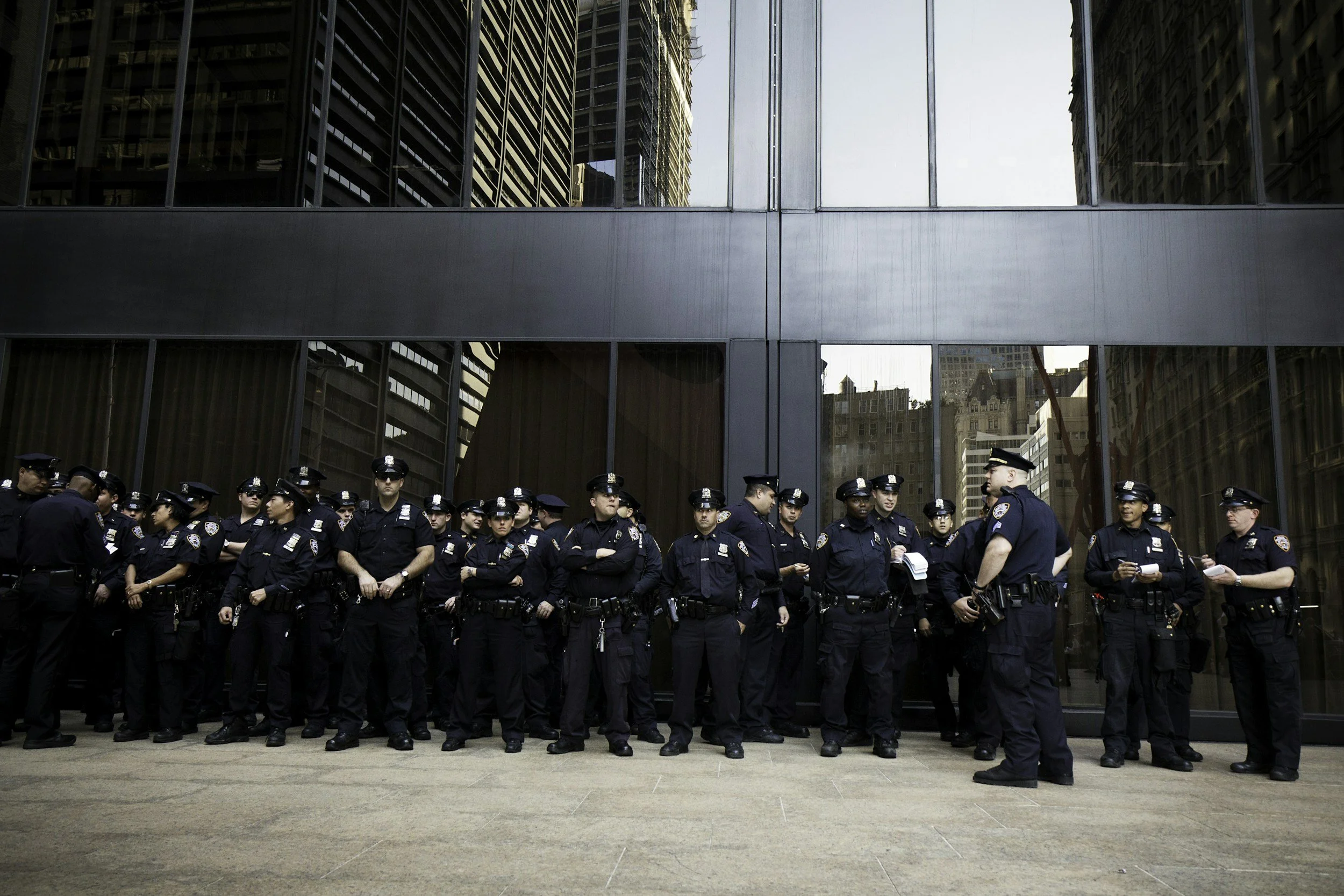15 A.I. Resistant Jobs That Are Needed
🎙️ 15 Jobs That Are Basically A.I. and Robot-Proof (So Far)
Filed Under: Human Resilience, AI Panic, and Jobs That Still Smell Like Sweat
By: A Deeply Organic, Emotionally Tired Human
By now, you’ve probably heard the buzz:
“AI is coming for our jobs!”
And sure, it is pretty good at certain things — writing emails, analyzing spreadsheets, generating a deeply weird version of Shakespeare as a TikTok influencer…
But let’s be honest: not every job can be done by an algorithm that doesn’t blink.
There are still careers that require physical finesse, moral judgment, human touch, emotional nuance, creativity under chaos, or just the ability to listen to someone rant about their in-laws for 45 minutes without spontaneously combusting.
So, if you’re looking for a career that has strong resistance to the silicon uprising, here are 15 jobs that AI still can’t touch — and likely won’t for a long time.
🧠 1. Therapists, Counselors and Mental Health Workers
AI can simulate sympathy. It can recommend a breathing exercise. But it can’t sit across from you, recognize your trembling hands, and ask just the right question that breaks your heart open (in a good way).
Therapists work in a realm of subtlety: micro-expressions, silence, sarcasm, pain buried under jokes. Human minds are messy, layered, and deeply illogical. Which means AI will always struggle with the art of healing the psyche.
Why It’s Safe: Emotional intelligence, deep listening, complex ethics, lived human experience.
✂️ 2. Hair Stylists, Barbers and Salon Artists
This isn’t just about cutting hair — it’s therapy with a cape. Clients talk about their lives, get beauty advice, and leave with boosted confidence. Hair stylists make people feel seen, heard, and hot.
Could a robot technically cut hair? Maybe. But would it understand how to suggest bangs without ruining your life? No. And good luck telling it not to cut too much off the sides.
Why It’s Safe: Fine motor skill, human trust, social bonding, and intuition about what “an inch” really means.
🔧 3. Electricians, Plumbers, HVAC Techs and the Fix-It Crowd
These folks work in unpredictable, often inaccessible physical spaces. There’s no clean data when you’re elbow-deep in a 1980s plumbing system with three wires, two leaks, and one mildly aggressive cat nearby.
A robot may diagnose a system from afar, but it won’t crawl through an attic, adjust to undocumented repairs, or find that “mystery rattle” your water heater makes on cold mornings.
Why It’s Safe: Physical dexterity, spatial awareness, on-the-spot problem solving, and extensive swearing (in a professional way).
🚒 4. First Responders: Firefighters, EMTs
Emergencies are chaotic, messy, high-pressure situations. Fire doesn’t burn according to code. Medical emergencies don’t always match textbook symptoms. Human beings panic, lie, cry, and do the exact opposite of what’s smart.
AI might be helpful in dispatch or analysis, but the people who kick in doors, administer CPR, make snap decisions, and calm terrified strangers are irreplaceable.
Why It’s Safe: Real-world unpredictability, ethical decisions, human empathy, and physical courage.
🧑🏫 5. Teachers – Especially K–12 and Special Ed
While AI can quiz you on algebra and recite historical facts, teaching is far more than content delivery. It’s inspiring trust, building relationships, spotting a student’s bad day before it spirals, and managing 30 personalities fueled by fruit snacks.
Try having a robot teach middle schoolers how to resist peer pressure while also enforcing the no-vape policy. I’ll wait.
Why It’s Safe: Emotional intelligence, classroom management, adaptability, mentorship, and infinite patience.
🎭 6. Performers, Actors, Comedians and Live Entertainers
Yes, AI can generate scripts. But it doesn’t know what it’s like to bomb on stage, sweat through a live set, or land a joke so well it brings down the house. Performing isn’t just saying lines — it’s timing, chemistry, vulnerability, and presence.
Audiences crave authenticity. Whether it’s a singer pouring heartbreak into a song or a comedian turning pain into punchlines, that connection is 100% human.
Why It’s Safe: Originality, emotion, live adaptation, and charisma that can’t be coded.
🧽 7. Professional Cleaners, Home Organizers and Baby Sitters
We have robot vacuums, sure. But they get confused by socks. Professional cleaners deal with homes that are as much psychological spaces as they are physical ones.
Organizing someone’s kitchen isn’t just about putting things in drawers — it’s about understanding their habits, quirks, and unspoken rules. A robot doesn’t know that the “junk drawer” is sacred and untouchable.
Why It’s Safe: Personalization, sensory judgment, tact, and the ability to deal with “mystery smells” without dying.
🩺 8. Doctors, Nurses, CNA’s, Healthcare Aides
Doctors may lean on AI for diagnostics. But nurses are the heart of healthcare. They comfort, treat, assist, listen, and often detect problems before machines ever beep.
They clean up messes (literal and emotional), reassure families, and handle the very human side of healing — with incredible skill and empathy.
Why It’s Safe: Physical caregiving, human intuition, complex multitasking, and emotional endurance.
💉 9. Massage Therapists and Physical Therapists
Touch can’t be automated. Not well, anyway. Massage therapists use intuition, pressure sensitivity, and anatomy knowledge to relieve pain and tension — all while reading a client’s body language in real time.
Plus, who’s going to book a massage with a machine named “KNEAD-3000”?
Why It’s Safe: Skilled hands, client trust, human energy, and therapeutic sensitivity.
🏠 10. Social Workers and Case Managers
These roles require deep empathy, communication, and the ability to navigate bureaucratic mazes while advocating for vulnerable humans. You don’t just need to know what form to fill — you need to hold space for someone in crisis.
AI can’t walk into a tense domestic situation and win trust. These jobs often involve fighting systems from inside them, which takes grit, patience, and heart.
Why It’s Safe: Moral reasoning, cultural context, advocacy, and emotional bandwidth.
🛠️ 11. Auto Mechanics
Cars are increasingly digital, but they still break in weird, very human ways. AI might help with diagnostics, but the reality is often way messier — melted wires, leaking fluids, and parts held together with zip ties and prayer.
Mechanics don’t just follow manuals. They troubleshoot, improvise, and recognize the “weird noise” you made with your mouth to describe what your car is doing.
Why It’s Safe: Hands-on knowledge, creative problem-solving, and human interpretation of vehicular nonsense.
👮 12. Law Enforcement and Security Professionals
Law enforcement involves reading body language, de-escalating tension, and handling unpredictable human behavior. Surveillance cameras might watch, but someone still has to respond when things go sideways.
AI doesn’t know when to back off, how to assess risk emotionally, or when someone’s “angry” is actually just scared.
Why It’s Safe: Human judgment, risk assessment, physical presence, and conflict resolution.
🎨 13. Tattoo Artists and Piercers
AI can generate tattoo designs. But when it comes to applying ink to skin, working with trembling first-timers, and honoring deeply personal stories, there’s no replacing the human touch.
Would you trust a robot with a vibrating needle and your ribcage? Didn’t think so.
Why It’s Safe: Trust, physical precision, artistic vision, and deep emotional storytelling.
🥘 14. Chefs, Bakers, Culinary Artists
Sure, AI can produce recipes. But it can’t taste, adjust on the fly, or invent flavor combinations based on childhood memories and a little spite.
The kitchen is a chaotic, sensory-rich environment. Good food is about instinct, memory, mood — things no sensor array can yet replicate.
Why It’s Safe: Human taste, improvisation, texture judgment and cultural intuition.
💼 15. Sales Professionals (Especially Relationship-Based Selling)
AI can optimize a funnel. But sales isn’t just persuasion — it’s trust, vibe-checking, and knowing when to shut up. It’s coffee meetings, charm, and reading body language like a seasoned therapist with a quota.
In high-value deals, especially in B2B or real estate, buyers want to feel seen — not sold to by Skynet.
Why It’s Safe: Empathy, timing, negotiation skills and human connection.
🧭 Final Word: Humans Still Win in the Long Run
Sure, AI is fast. It’s helpful. But when it comes to emotion, ethics, embodiment, and improvisation, we’re still the top dogs. Jobs that depend on presence, physical skill, trust, and intuition are sticking around — and they may be more valuable than ever.
So if you’re in one of these professions — or considering one — relax.
The robots might be good.
But they’re not you.















